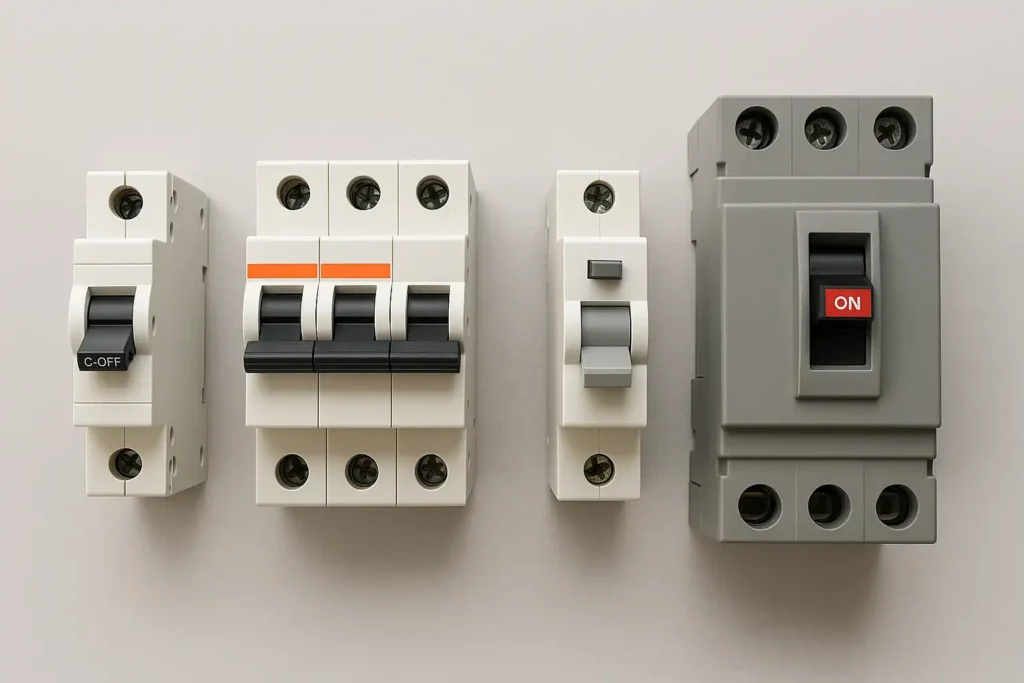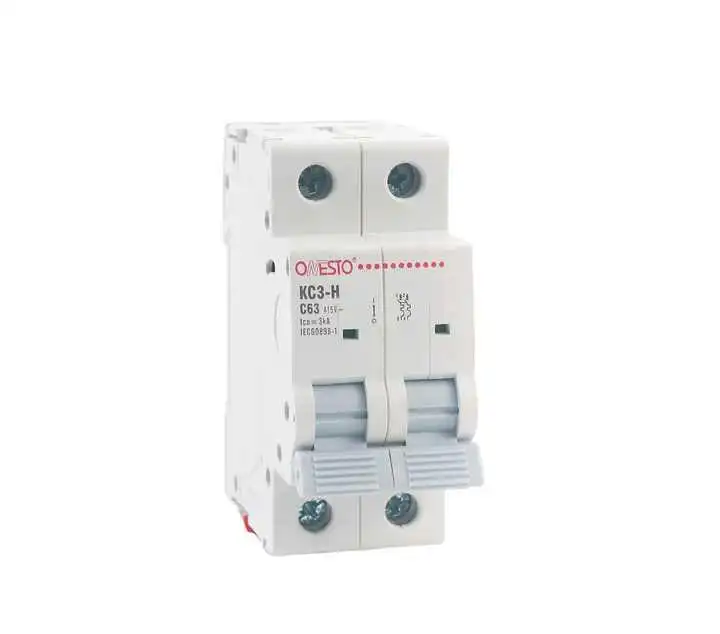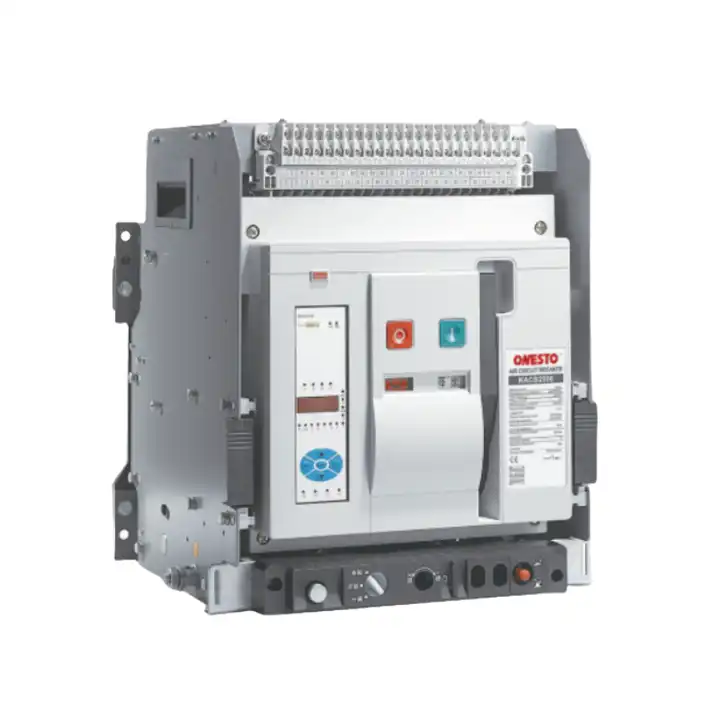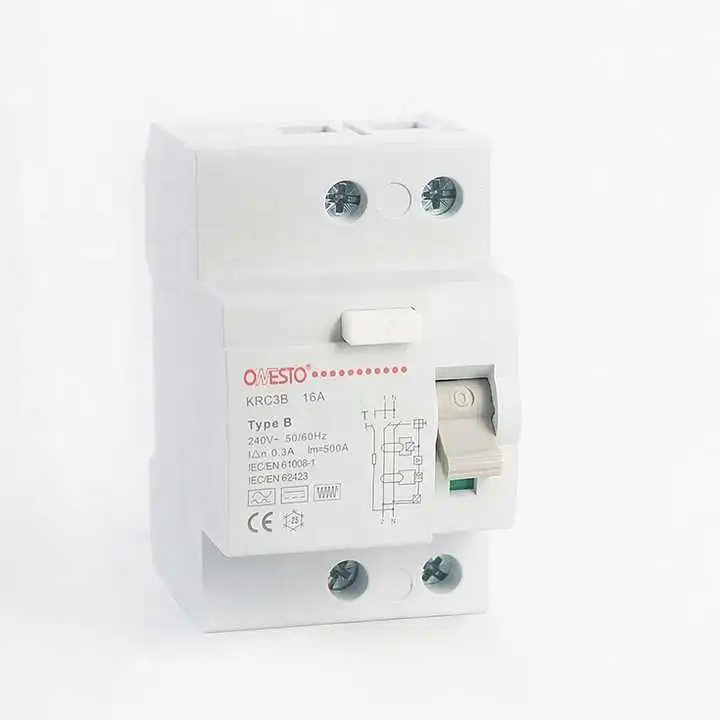The standard size of circuit breakers is crucial in the selection of electrical equipment. Choosing the appropriate size of circuit breaker not only helps ensure the safe operation of the power system, but also avoids power waste and equipment failures. In this article, we will delve into the standard dimensions of circuit breakers, how to choose the appropriate size, and common types and size requirements of circuit breakers.
Key points
- Miniature Circuit Breaker (MCB): 1A-125A, width 18-54mm, generally used in household/commercial scenarios
- MCCB: 100A-1600A, width 200-250mm, used for conventional industrial power distribution
- Air Circuit Breaker (ACB): 630A-6300A, width starting from 400mm, used for large power systems
- Residual current circuit breaker (RCD): 100A-630A, width 35-70mm, used to prevent electric shock accidents caused by electrical equipment leakage
Classification of common circuit breakers
Air Circuit Breaker (ACB)
Mini Circuit Breaker (MCB)
Residual current circuit breaker (RCD)
Low voltage circuit breaker (MCCB)
Different types of circuit breakers have different size requirements and application scenarios. Understanding the standard dimensions of circuit breakers can help you choose the appropriate one, ensuring the safety and reliability of electrical systems.
Standard size of circuit breaker
Miniature circuit breaker
Miniature circuit breaker (MCB) is a protective device used for low current circuits, widely used in household and small industrial circuits.
- Single pole miniature circuit breaker: typically 18mm in size
- Bipolar MCB: typically 36mm in size
- Three pole miniature circuit breaker: typically 54mm in size
- Rated current: 1A, 2A, 6A, 10A, 16A, 20A, 25A, 32A, 40A, 63A, 100A, 125A
These dimensions mainly depend on the number of poles of the circuit breaker. Choosing the correct MCB is crucial for circuits that require different current carrying capacities.
Air Circuit Breaker
Air circuit breakers are commonly used for high-power electrical equipment or industrial power distribution. Its standard size is relatively large, depending on the current rated value:
- 160A: The width is usually 180mm, the depth is 150mm, and the height is 220mm
- 250A: The width is usually 220mm, the depth is 180mm, and the height is 250mm
- 400A: The width is usually 300mm, the depth is 250mm, and the height is 350mm
The size of the circuit breaker may vary depending on the load requirements. Choosing the appropriate size of circuit breaker can help achieve long-term stable operation of the equipment.
Leakage circuit breaker
Leakage circuit breakers are mainly used to prevent electric shock accidents caused by electrical equipment leakage. Its size mainly depends on the rated current and number of poles:
- 2P residual current circuit breaker: The width is generally 35mm
- 4P residual current circuit breaker: The width is generally 70mm
The size of residual current circuit breakers is usually matched with circuits for household and small commercial purposes.
Molded Case Circuit Breaker
MCCBs find extensive application in factory environments for the protection of power systems from short circuits and overloads. Its size is quite large and is determined in accordance with rated current and the number of poles:
- 100A MCCB: typically 90mm wide, 150mm deep, and 200mm tall
- 250A MCCB: typically 120mm wide, 180mm deep, and 250mm tall
How to choose the appropriate size of circuit breaker?
In selecting a circuit breaker, aside from size, the following must also be considered:
- Rated current: Choose the rated current of the circuit breaker based on the circuit’s maximum current.
- Pole selection: Choose the number of poles (single pole, double pole, three pole, etc.) of the circuit breaker based on the electrical system’s wiring method.
- Rated voltage: The circuit breaker’s rated voltage should be the same as the operating voltage of the power system.
- Application scenario: Select the appropriate type and capacity of circuit breaker according to the needs of households, power facilities, or industrial applications.
What are the effects of selecting the wrong circuit breaker size
Choosing mismatched circuit breaker sizes is one of the most common engineering hazards in electrical systems. According to industry statistics, about 42% of power distribution failures are caused by incorrect selection of circuit breakers, which directly leads to frequent overload tripping, inability to timely cut off short-circuit currents, and even equipment burnout or arc fires.
Appropriate size can not only improve the reliability of the system, but also enhance energy efficiency and reduce unnecessary maintenance costs.
FAQ
Why is it necessary to select a circuit breaker of the right size?
Selecting the right size can make the electrical system safe, prevent equipment damage and power wastage, and enhance the stability and efficiency of the system.
What is the size difference between air circuit breakers and miniature circuit breakers?
Miniature circuit breakers are extensively applied in residential and low current circuits and are provided in smaller sizes; Air circuit breakers are available in heavier and large-sized applications applied on heavy power circuit applications.
How big is an average residual current circuit breaker size?
Typically, residual current circuit breaker sizes are 2P and 4P sizes measuring 35mm and 70mm respectively.
How to choose the appropriate size of circuit breaker
The difference between MCCB and MCB
6 key points on how to choose a distribution box







